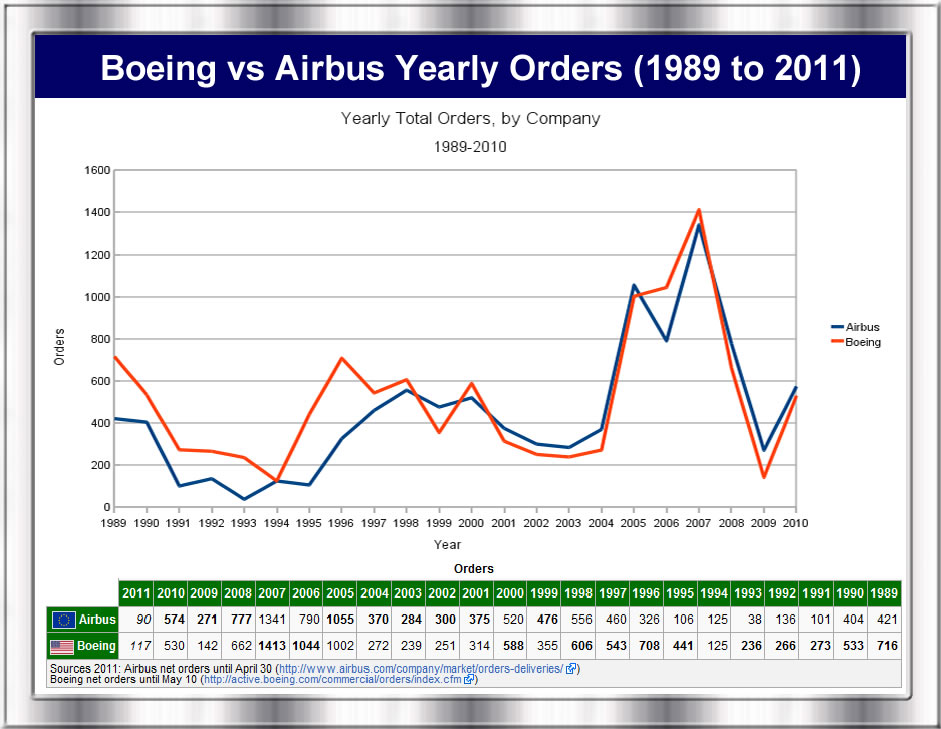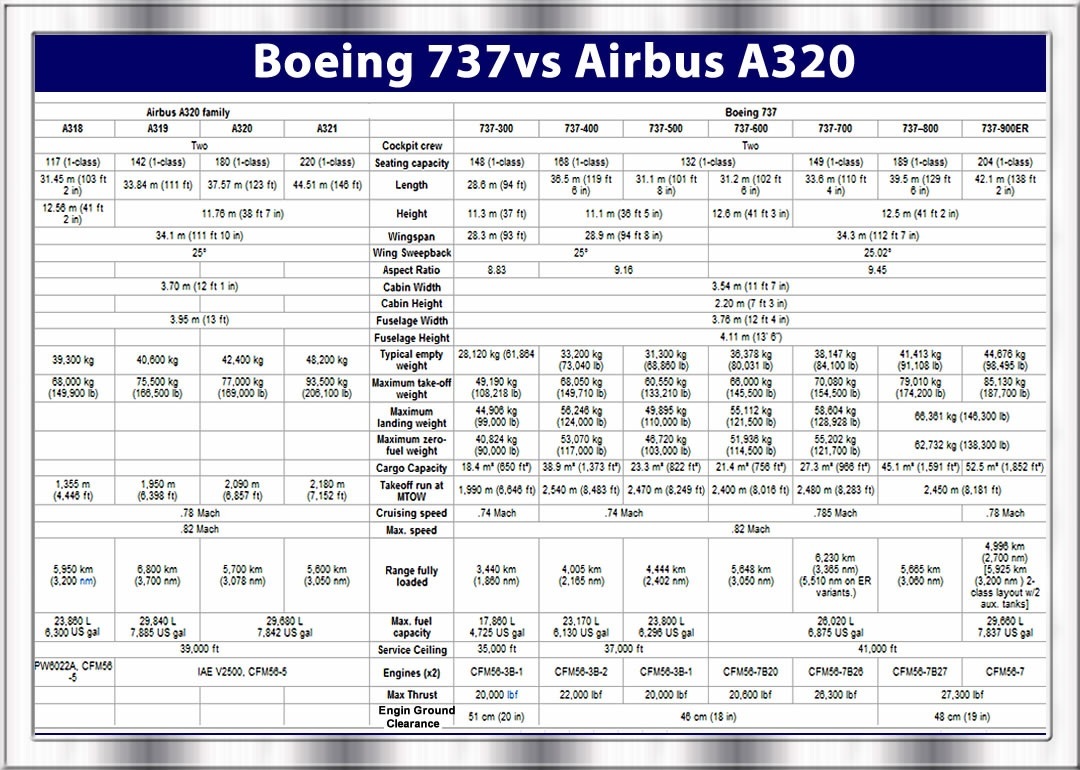|
WTO Determined EU compliance on Airbus subsidies
Last Friday on 13 April 2012, WTO (World Trade Organization) the Dispute Settlement Body (DSB) agreed to the United States’ request for a panel under Article 21.5 of the Dispute Settlement Understanding to examine the European Union’s compliance in the Airbus case.
The US said that its consultations with the EU had failed to resolve the dispute. According to the US, the EU had introduced new subsidies. The US further recalled that, in looking at the effect of the EU subsidies, the Appellate Body had confirmed the Panel's finding that among the most plausible scenarios was that “without the subsidies, Airbus would not have existed ... and there would be no Airbus aircraft on the market. None of the sales that the subsidized Airbus made would have occurred.”
The US also stated that the EU notification (WT/DS316/17) concerning the steps it had taken to comply showed that it had not changed its behaviour in any meaningful way, and that the actions the EU claimed to have taken appeared to do nothing to withdraw the subsidies or to remove their adverse effects. According to the US, the EU notification acknowledged that the largest launch aid subsidies, for the A380, remained in place. The US added that Airbus itself reported that it had received new launch aid for the A350XWB however, while US claiming to have complied, the EU seemed to have made the problem worse which is in full compliance with the DSB's rulings as it had notified on 1 December 2011 (WT/DS316/17). In line with its sequencing agreement with the US (WT/DS316/21), the EU agreed to the establishment of a panel. The following delegations reserved their third-party rights: Australia, Canada, China, Japan and Korea.
US Measures Affecting Trade in Large Civil Aircraft, The panel and Appellate Body which was meeting on 23 March. As required by dispute settlement procedures, the US was expected to inform the DSB, within 30 days of adoption, about its intentions concerning implementation, and it intended to do so within the time-frame established in Article 7.9 of the SCM Agreement.
The EU welcomed the US statement. The EU further pointed out that Article 7.9 of the SCM Agreement provided a six-month period from date of adoption for the US to take appropriate steps either to withdraw the subsidies or to remove their adverse effects. The EU said that this period would expire on 23 September 2012.
The US said that the Boeing dispute came about because seven years ago, the US sought to challenge launch aid, the form of financing whereby the EU member states pay for the development of Airbus aircraft, and airbus does not have to repay if the aircraft proves unsuccessful. According to the US, these subsidies were responsible for every single airbus aircraft ever produced and caused massive adverse effects to US trade. The US said that in response to this dispute, the EU argued that US subsidies were bigger and more distortive of trade. The US said that the panel and Appellate Body reports had vindicated its position. The US added that the reports rejected most of the EU claims of adverse effects which was on second complaint by U.S. and The panel and Appellate Body reports were released on 31 March 2011 and 12 March 2012.
CNN interview with Jim Albaugh, Boeing Commercial CEO, on April 16, shows that Boeing would like to see dispute Settlement Body of WTO should be level playing field which is very important. It is well known and understand that the dispute Settlement Body of WTO, more than 18 billion dollars of EU unfair subsidies. Boeing is looking for the same set of rules not for the negotiation. If there are any Inconsistant with WTO, should be fix which is not for the negotiation but, the Boeing is looking for "the compliance" to fix the wrong doing against the WTO rules. If there is compliance set was given by WTO, it should be kept and doing so respectfully with their action as certified in their writing and signature and no more subsidies.....
On March 30th, 2012, U.S. Trade Representative Ron Kirk said. “The European Union’s aircraft subsidies have cost American
aerospace companies tens of billions of dollars in lost revenue, which has cost
American workers their jobs and hurt their families and communities."
Next meeting of the DSB is scheduled for 24 April 2012.
The World Trade Organization (WTO) is the only global international organization dealing with the rules of trade between nations. At its heart are the WTO agreements, negotiated and signed by the bulk of the world’s trading nations and ratified in their parliaments. The goal is to help producers of goods and services, exporters, and importers conduct their business around the world.
There are 153 WTO members as of July 2008.(Included the membership satart date).
 |
catch4all.com,
Sandra Englund, April 17, 2011.
Souces: CNN, WTO, Office of the United States Trade Representative.
|
|
|
Office of the United States Trade Representative:
Executive Office of the President:
U.S. Trade Representative Ron Kirk
Announces U.S. Challenge to Europe in Aircraft Trade Dispute
March 30, 2012
|
|
Washington, D.C. – United States Trade Representative Ron Kirk announced today that the United States is requesting the establishment of a World Trade Organization (WTO) compliance panel to address the European Union’s (EU) failure to remove WTO-inconsistent subsidies to Airbus.
“We refuse to stand by while American businesses and workers are disadvantaged,” Ambassador Kirk said. “The European Union’s aircraft subsidies have cost American aerospace companies tens of billions of dollars in lost revenue, which has cost American workers their jobs and hurt their families and communities. By taking this action today, we are reiterating the Obama Administration’s commitment to ensuring that every one of our trading partners plays by the rules, and that American companies can compete on a level playing field. The United States remains prepared to engage with the EU in any meaningful efforts that will lead to the goal of ending subsidized financing at the earliest possible date.”
In June 2011, the WTO ruled that the EU and four of its member States conferred more than $18 billion in subsidized financing to Airbus, and that European government launch aid had been used to support the creation of every model of large civil aircraft produced by Airbus. The WTO found that these subsidies caused Boeing to lose sales of more than 300 aircraft and to lose market share throughout the world. In fact, in looking at the effect of the EU subsidies, the Appellate Body confirmed the Panel’s finding that, among the most plausible scenarios was that “[w]ithout the subsidies, Airbus would not have existed… and there would be no Airbus aircraft on the market. None of the sales that the subsidized Airbus made would have occurred.” In contrast, the WTO rejected the EU assertion that U.S. subsidies were responsible for the viability of Boeing’s large civil aircraft production.
In December 2011, the EU claimed to have removed the WTO inconsistencies, but provided no evidence to support its claims. However, the EU has not removed its WTO-inconsistent subsidies and has even provided new ones. To provide the EU with an additional opportunity to explain its claims, the United States held consultations with the EU in January 2012. The EU was unable or unwilling to substantiate its claims to have addressed the WTO inconsistencies, and the consultations failed to resolve the dispute.
The United States has asked for a meeting of the WTO Dispute Settlement Body on April 13, 2012, to address this issue. Pursuant to an agreement between the United States and the EU, a panel will be established at that meeting.
The Boeing Company is the only American producer of large civil aircraft and is the largest single U.S. exporter. Boeing is headquartered in Chicago, IL, and has major facilities around the country, including in Washington, South Carolina and Kansas. The company employs more than 157,000 people and sold $31.8 billion worth of commercial aircraft in 2010. Boeing is the largest American manufacturer of commercial jetliners and military aircraft, with additional capabilities in helicopters, electronic and defense systems, missiles, satellites and advanced information and communications systems.
-----------------------------------------------------------------------
In addtion, on Feb. 21st, 2012, U.S. Trade Representative Ron Kirk reported on White House report that-Boeing, like other American companies, knows from experience the importance of strong trade enforcement. For many years, the EU and its various member states provided Airbus, Boeing’s main global competitor, with more than $18 billion in subsidies. As a result, Boeing has been competing on an un-level playing field – losing market share and possible job-creating opportunities.
U.S. Trade Rep. Rond Kirk included that last year the Obama Administration secured a victory against EU subsidies to Airbus. It was the largest verdict in the history of the World Trade Organization. USTR is currently working to ensure that the EU implements the necessary changes and stops the illegal subsidies. Once implemented, this decision will lead to a more level playing field for Boeing and its many suppliers across America who support well-paying jobs for tens of thousands of hard-working Americans.
Meanwhile WTO adopted Boeing reports on 23 March 2012 for dispute settlement. The Dispute Settlement Body (DSB) adopted the panel and Appellate Body reports which examined United States’ subsidies to its civil aircraft industry. It elected Ambassador Shahid Bashir of Pakistan as the new chair of the DSB for a one-year term.
|
|
|

|
The following matrix show that the yearly deliveries for Boeing vs Airbus since 1989 to April/May for 2011.
You can see the delivery trans has gone down since 2003 for Boeing.
|

|
The recent Boeing News shows that 737 production will be 40 a month in Renton, WA in the future, however,
the company, which now produces about 31 of the twin-engine planes monthly in Renton, already is committed to raising the pace to 35.
Speaking of 737 production, see below for 737 vs A320 differences which show the lighter plan for Boeing which would make more fuel efficiency and reliable to fly....
|

|
The WTO has 153 members, representing more than 97% of the world's population,and 30 observers, most seeking membership.
The WTO is governed by a ministerial conference, meeting every two years; a general council, which implements the conference's policy decisions and is responsible for day-to-day administration; and a director-general, who is appointed by the ministerial conference. The WTO's headquarters is at the Centre William Rappard, Geneva, Switzerland.
After so many years and panels passes by, European Communities and Certain Member States — Measures
Affecting Trade in Large Civil Aircraft Appellate Body issues report on Airbus dispute was on 18 May 2011 Measures Affecting Trade in Large Civil Aircraft” (WT/DS316/AB/R). A dispute arises when a member government believes
another member government is violating an agreement or a commitment that it has
made in the WTO. The authors of these agreements are the member governments
themselves — the agreements are the outcome of negotiations among members.
Ultimate responsibility for settling disputes also lies with member governments,
through the Dispute Settlement Body.
Finally, it is victory win for Boeing which is a clear, final win for fair trade that will level the playing field for America’s aerospace workers,” as what Jim McNerney, Boeing chairman, president and chief executive officer says....although some says, it may have benefited to forgiving for Airbus which made unhappy for others and all...but, EU is certainly should know that unfair EU subsidies for Boeing must withdraw and prohibited subsidies within 90 days.
WTO
Boeing
catch4all.com
wikipedia
 |
catch4all.com,
Sandra Englund, May 21st, 2011 |
|
|
|